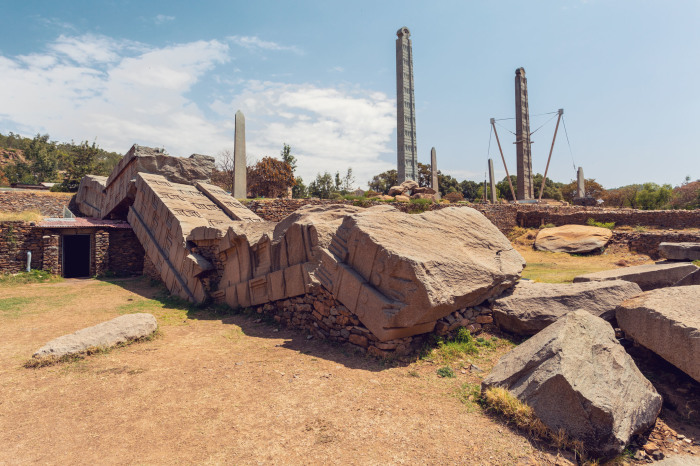1,700-year-old Christian church uncovered in Ethiopia sheds new light on spread of Christianity

The remains of a 1,700-year-old Christian basilica have been uncovered in Ethiopia, giving archaeologists new insight into when Christianity arrived in sub-Saharan Africa.
The Roman-style basilica, from the fourth century A.D., was found in Beta Samati, an ancient town that was once part of the Aksumite civilization, according to a paper published in Antiquity. The remains of the 60 feet long, 40 feet wide building dates back to the time when Christianity became the official religion of the Aksumite empire.
Originally developed by the Romans for administrative purposes, the oldest-known Christian church in sub-Saharan Africa was likely adopted by Christians at the time of Constantine for their places of worship. According to the Smithsonian, the discovery of the church and its contents “confirm Ethiopian tradition that Christianity arrived at an early date in an area nearly 3,000 miles from Rome.”
“The find suggests that the new religion spread quickly through long-distance trading networks that linked the Mediterranean via the Red Sea with Africa and South Asia, shedding fresh light on a significant era about which historians know little,” it adds.
Although Christianity had reached Egypt by the third century A.D., it was not until Constantine’s legalization of Christian observance that the church expanded widely across Europe and the Near East, notes the Smithsonian. Thanks to their new discovery, researchers “can now feel more confident in dating the arrival of Christianity to Ethiopia to the same time frame."
“[This find] is to my knowledge the earliest physical evidence for a church in Ethiopia, [as well as all of sub-Saharan Africa,]” Aaron Butts, a professor of Semitic and Egyptian languages at Catholic University in Washington, D.C., told the Smithsonian.
Michael Harrower of Johns Hopkins University, the archaeologist leading the team, said that while the empire of Aksum was “one of the world’s most influential ancient civilizations,” it “remains one of the least widely known.”
“The excavations of Beta Samati help fill important gaps in our understanding of ancient Pre-Aksumite and Aksumite civilizations,” he said.
Both secular and religious artifacts were discovered in and around the basilica, including a gold ring, cattle figurines, crosses, stamp seals, and tokens that were likely used for trade and administration.
Researchers also uncovered a stone pendant carved with a cross and incised with the ancient Ethiopic word “venerable,” as well as incense burners. Near the eastern basilica wall, the team came across an inscription asking “for Christ [to be] favorable to us.”
The “mixing of Christian and pagan traditions” discovered near the basilica “shows a complex blurring of secular trade and administration ... that warrants further investigation,” researchers said.
Beta Samati means “house of audience” in the local language, which could point to its role as an important ancient administrative hub.
The town was first occupied by the civilization known as pre-Aksumite around 750 B.C. and abandoned more than 1,000 years later, around 650 A.D. The ancient town was discovered in 2009.
The team conducted their work between 2011 and 2016. Researchers will reportedly continue to excavate the site, as “research at the site has the potential to clarify a range of topics, including the rise of one of Africa's first complex polities, the development of Aksum's trade connections, the conversion from polytheism to Christianity, and the eventual decline of the Empire of Aksum.”





























